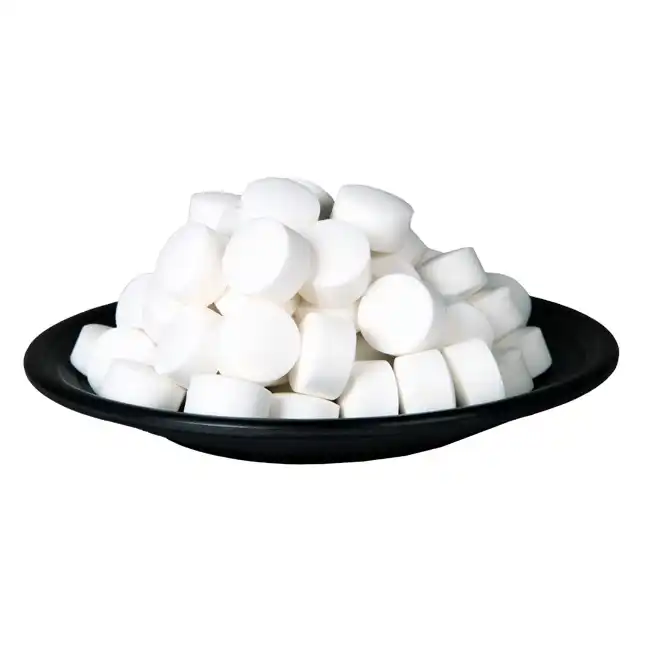In modern society, swimming pools serve as places for public leisure and exercise, and their water quality safety is of vital importance. In the field of swimming pool water treatment and disinfection, using appropriate disinfectants and correctly controlling their dosage is the key to ensuring clean water quality and swimmer health. In addition, the application of disinfectants is not limited to swimming pools, but has also shown extensive application value in many other fields. This article will delve into the correct use and precautions of swimming pool disinfectants, and also introduce the multifunctional applications of disinfectants in other fields.
In swimming pool water treatment and disinfection, it is not true that the more disinfectants used, the better. Correct dosage is critical as too much or not enough disinfectant can have health consequences for swimmers, as well as affecting water quality.
First of all, the amount of disinfectant needs to be determined based on the actual conditions of the swimming pool, including factors such as the size of the pool, water quality, and water temperature. Here are some suggestions for using common disinfectants:
Chlorine dioxide disinfectant: The usually used concentration is 0.3 to 0.5 ppm (parts per million), meaning 0.3 to 0.5 grams of chlorine dioxide needs to be added for every ton of water treated. Chlorine dioxide is an effective disinfectant that can effectively kill bacteria and viruses in water.
Trichloroisocyanuric acid disinfectant: In 1,000 cubic meters of water, adding 2 kilograms of disinfectant powder can increase the concentration of trichloroisocyanuric acid in the water by 1.8 mg/L. For example, for a 1,000 cubic meter swimming pool, adding 1 kg of disinfectant powder can increase the concentration by 0.9 mg/L. This disinfectant may cause the pH of the water to drop under long-term use.
In addition, controlling the pH of the water is also an important part of swimming pool water treatment. The state stipulates that the pH range of swimming pool water should be between 6.8 and 8.2, and the ideal pH range is 7.4 to 7.6. The control of pH value not only affects the effectiveness of disinfectants but also affects the comfort and safety of swimmers.

Will the large piece of chlorine in the swimming pool be easily dissolved when put into the pool?
Large pieces of chlorine in swimming pools (i.e., trichloroisocyanuric acid) are easily dissolved when placed in the pool. This kind of chlorine tablet can be completely dissolved in about 10 minutes after being put into the swimming pool water, leaving no residue.
This is due to the characteristics of trichloroisocyanuric acid: it contains more than 90% of available chlorine, has strong stability, and can be stored for a long time at room temperature with less loss of available chlorine content. In addition, trichloroisocyanuric acid has high solubility and can be quickly and completely dissolved in water to form a highly concentrated bleach solution while producing very little insoluble matter.
Other uses of chlorine tablets Several main uses of chlorine tablets
- Dry cleaning and bleaching: Chlorine tablets are particularly suitable for dry cleaning and bleaching in hospitals and nursing care settings, and are particularly effective in bleaching and sterilizing white cotton.
- Water disinfection: Chlorine tablets perform well in disinfecting drinking water, swimming pool water, and domestic wastewater, effectively ensuring the safety and cleanliness of water quality.
- Agriculture and livestock applications: Chlorine tablets are an important disinfection tool in aquaculture, poultry and livestock farming, and pasture disinfection. In addition, they are also used for disinfection of vehicles and ships, sericulture, low-temperature bleaching in the textile industry, sterilization and anti-shrinkage treatment of wool, and descaling and purification of civil toilets.
- Chemical industry applications: In the chemical industry, chlorine tablets are widely used as oxidants, chlorinating agents, and chlorinating agents for rubber.
To sum up, the correct use of swimming pool disinfectants is crucial to ensuring the cleanliness of swimming pool water and the health of swimmers. The correct dosage of disinfectant, proper water pH control, and regular water quality testing are key factors in ensuring safe swimming pool water quality. At the same time, we have also seen the wide application of disinfectants in dry cleaning, bleaching, water disinfection, agriculture, animal husbandry, chemical industry, and other fields, which further proves their versatility and practicality. In the future, with the development of science and technology and the improvement of people’s health awareness, the use of disinfectants

 Instant
Quote
Instant
Quote Email
Us
Email
Us